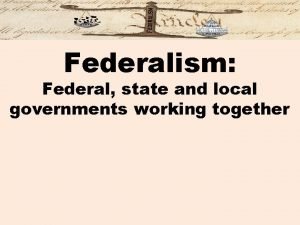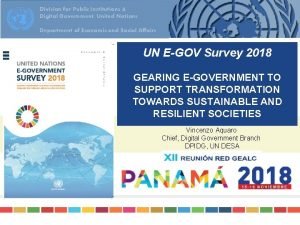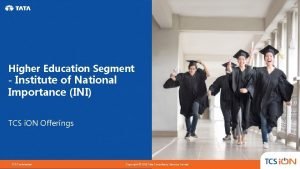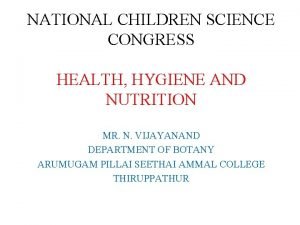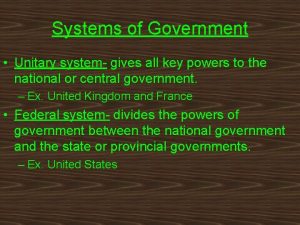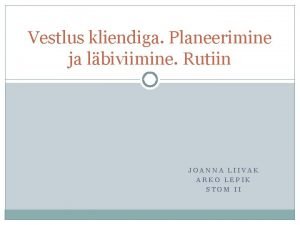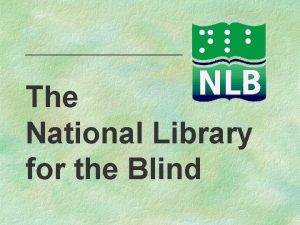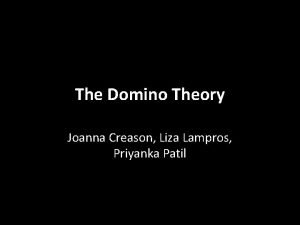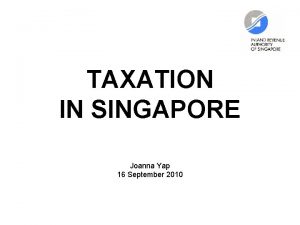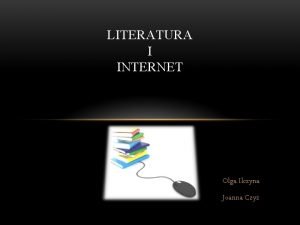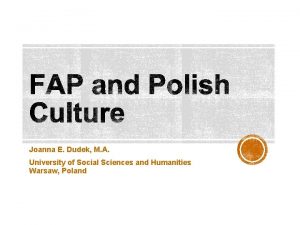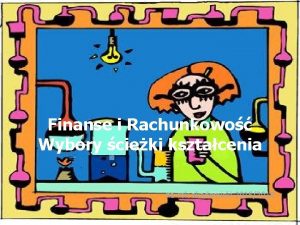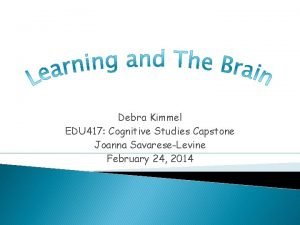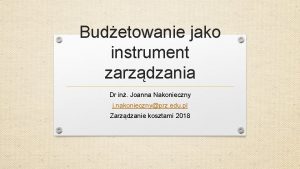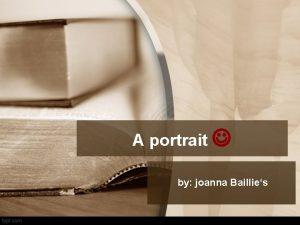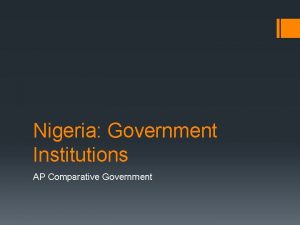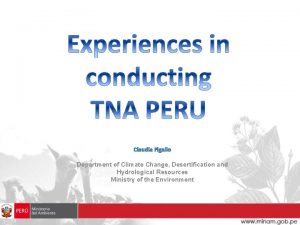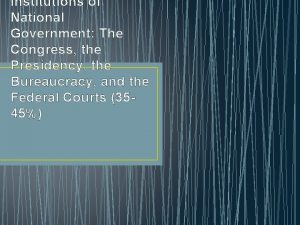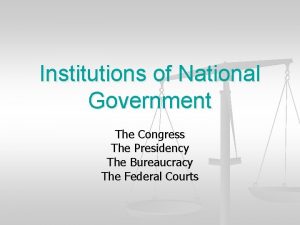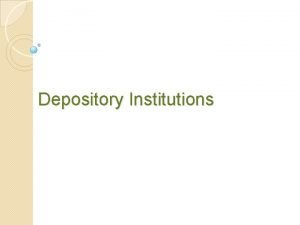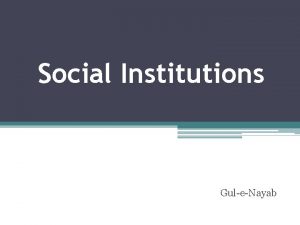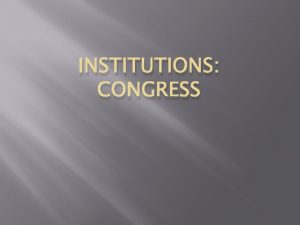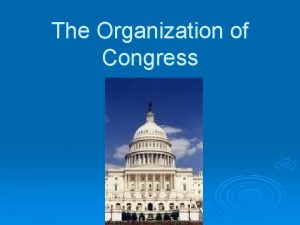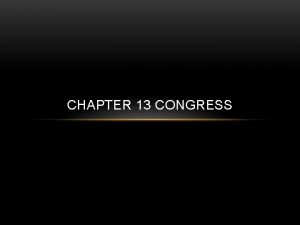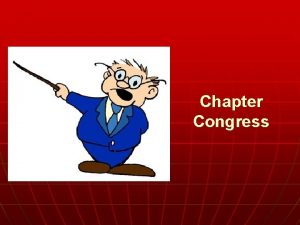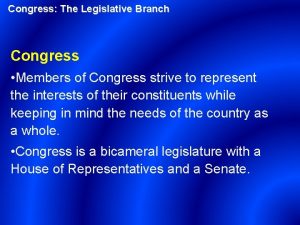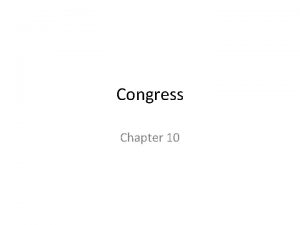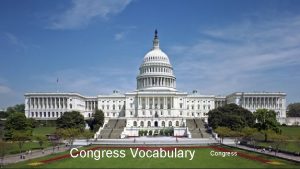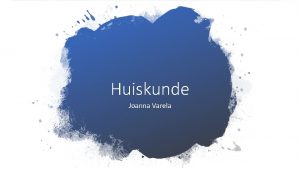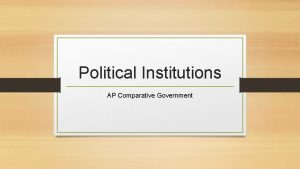Institutions of National Government Congress Joanna Figallo The




















- Slides: 20

Institutions of National Government: Congress Joanna Figallo

The Major Formal and Informal Institutional Arrangements of Power: ● Bicameral (two house legislatures) ○ ○ ● ● ● Senate ■ 100 members, 6 year terms, less formal House of Representatives ■ 435 members, 2 year terms, more formal Make laws Declare war Taxing and Spending Regulate commerce Create courts Establish post offices


Relationships Among the Four Institutions and Varying Balances of Power ● Congress checks on the Presidency: ○ ○ ○ ○ House can impeach president Senate can hold impeachment trial Congressional override of veto (⅔ vote) Congress declares war Senate must approve of treaties, ambassadors, and departmental appointees Must approve Vice President replacements If there is no electoral majority, the House chooses the President and the Senate chooses the Vice President

Relationships Among the Four Institutions and Varying Balances of Power ● Congress checks on the Bureaucracy ○ ○ Congressional committees can hold hearings to question actions of any agencies. Rewrite legislation that defines what each agency is in charge of Must approve all expenses for agencies ■ Appropriation Committees in the House and Senate divide funds for agencies Congressional Oversight ■ Legislative review of a particular government program or organization; can be in response to a crisis of some kind or part of routine review.

Relationships Among the Four Institutions and Varying Balances of Power ● Congress checks on the Federal Courts ○ ○ ○ ○ House can impeach judges Senate holds impeachment trial for judges Senate approves justices Make lower courts Can make amendments Sets jurisdiction for courts Can alter the size of the Supreme Court

Linkages Between Congress and Public Opinion and Voters ● Congress is considered the most closely tied to the public/voters of the four institutions. ○ ○ This is because voters are able to directly elect their representatives in both houses. The house is considered even more closely related to the public because seats are up for reelection every two years, allowing the public to have their views more accurately expressed in government.

Linkages Between Congress and Interest Groups ● What is an Interest Group? ○ An organization of people with shared policy goals entering the policy process at several points to try to achieve those goals ● Interest Groups often target Congress through money, research, or by testimony. ● Interest Groups can help politicians plan political strategies for legislation campaign. ● Groups can also help by funding campaigns, working for candidates, and provide testimony. They can also form PACs. ○ Political Action Committee (PAC): used by interest groups to donate money to candidates.

Linkages Between Congress and Political Parties ● Political parties represent ideologies that show the different approaches of how people believe the government should be run. ● Each party elects the people who best represent their ideologies into Congress so that they gain political power and can have their philosophy become the public policy. ● Political parties can provide information to voters about the candidates running, can raise funds in order to support a party candidate, or mobilize voters to elect the party candidates.

Linkage Between Congress and the Media ● Media is considered the main link because most people find out about candidates, current events, and political issues through the media. ● Media is a very powerful linkage because it can easily influence anyones views on politics, and because it influences the political agenda of Congress. ● The media essentially dictates which issues are important by how often the issue is spoken of on the media. According to the agenda setting theory, the more something is covered by the media, the more important it is seen as by the public.

Linkage Between Congress and State and Local Governments ● The Constitution of the United States establishes the relationship between Congress and the state & local governments. It grants certain powers specifically to Congress, like the ones mentioned earlier, and prohibits state governments from activities that could undermine national government, such as declaring war, imposing tariffs, etc. States are given power over everything else. ● Local governments essentially have their own jurisdiction, but they have to conform to state law and must be approved by state government. ● States delegate power to local bodies.

Practice AP Questions 1. The term “bicameralism” refers to the a. b. c. d. e. establishment of two legislative chambers that have different structures and rules Members of the House of Representatives having two-year terms President having veto power over both chambers of Congress Members of the House and Senate having to appease their mutual constituencies Checks that Congress has over the federal bureaucracy 2. Congressional legislative powers include all of the following EXCEPT a. b. c. d. e. Legislating federal appropriations Approval of treaties Establishing a lower-court system Passing federal laws Pardoning felons

Practice AP Questions- Correct Answers 1. The term “bicameralism” refers to the a. b. c. d. e. establishment of two legislative chambers that have different structures and rules Members of the House of Representatives having two-year terms President having veto power over both chambers of Congress Members of the House and Senate having to appease their mutual constituencies Checks that Congress has over the federal bureaucracy 2. Congressional legislative powers include all of the following EXCEPT a. b. c. d. e. Legislating federal appropriations Approval of treaties Establishing a lower-court system Passing federal laws Pardoning felons

Practice AP Questions 1. Which of the following powers is shared by the House of Representatives and the Senate? a. b. c. d. e. Holding trials of impeachment Establishing federal courts Approving treaties Holding confirmation hearings Approving major presidential appointments 2. One of the ways in which the legislative branch provides checks and balances on the executive branch is that a. b. c. d. e. The House must approve presidential treaties Congress can vote to remove presidential appointees at any time The Senate can limit the number of staffers the president is allowed to have The House can conduct an impeachment trial of the president The Senate must approve presidential appointees

Practice AP Questions- Correct Answers 1. Which of the following powers is shared by the House of Representatives and the Senate? a. b. c. d. e. Holding trials of impeachment Establishing federal courts Approving treaties Holding confirmation hearings Approving major presidential appointments 2. One of the ways in which the legislative branch provides checks and balances on the executive branch is that a. b. c. d. e. The House must approve presidential treaties Congress can vote to remove presidential appointees at any time The Senate can limit the number of staffers the president is allowed to have The House can conduct an impeachment trial of the president The Senate must approve presidential appointees

Practice AP Question 1. Which of the following is true of political action committees (PACs)? a. b. c. d. e. They make campaign contributions in hopes of gaining access to legislatures. They are part if political party organizations. They are allowed to contribute to only one candidate in any election. They nominate candidates for president at national party conventions. They operate at the state level but not at the national level.

Practice AP Question- Correct Answer 1. Which of the following is true of political action committees (PACs)? a. b. c. d. e. They make campaign contributions in hopes of gaining access to legislatures. They are part of political party organizations. They are allowed to contribute to only one candidate in any election. They nominate candidates for president at national party conventions. They operate at the state level but not at the national level.

Practice AP FRQ

Practice AP FRQ Rubric pt. 1

Practice AP FRQ Rubric pt. 2
 National government vs federal government
National government vs federal government Division for public institutions and digital government
Division for public institutions and digital government Institutions of national importance
Institutions of national importance National children's science congress projects ideas
National children's science congress projects ideas In which system are all key powers
In which system are all key powers Lois transpordiamet ee
Lois transpordiamet ee Joanna czekurłan
Joanna czekurłan Dr joanna widdows
Dr joanna widdows Domino theory
Domino theory Joanna yap
Joanna yap Joanna franklin
Joanna franklin Liternet co to
Liternet co to Joanna holden
Joanna holden Joanna drozdowska
Joanna drozdowska Polish influencers fap
Polish influencers fap Joanna chmiel
Joanna chmiel Joanna turek wecel
Joanna turek wecel Joanna helios uwr
Joanna helios uwr Joanna savarese
Joanna savarese Mattan mansoor
Mattan mansoor Joanna nakonieczny prz
Joanna nakonieczny prz
